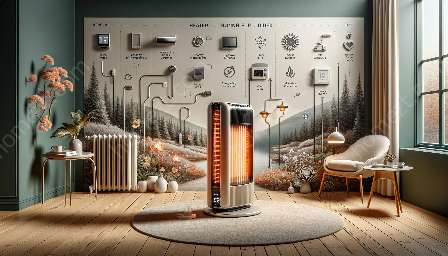Oil heaters are an effective and efficient heating solution that can provide warmth and comfort in various settings. Whether you're considering a heater for your home, office, or industrial space, understanding the benefits, working principles, and maintenance tips for oil heaters can help you make an informed decision.
Understanding Oil Heaters
What are Oil Heaters?
Oil heaters, also known as oil-filled radiators, are a type of heater that uses oil as a heat reservoir to provide warmth. They are known for their energy efficiency and ability to maintain consistent heat for extended periods.
Working Principles of Oil Heaters
Oil heaters operate by heating a special oil, which is contained within the heater's fins or columns. The oil then radiates heat, warming the surrounding air and providing a comfortable environment. This process allows for steady and efficient heat distribution.
Benefits of Oil Heaters
Energy Efficiency
Oil heaters are known for their energy efficiency, as they can retain heat for an extended period even after being turned off. This can result in lower energy consumption and reduced heating costs.
Quick Heating
Oil heaters can heat up quickly, making them an ideal choice for spaces that require rapid heating, such as bedrooms, offices, and living areas.
Silent Operation
Compared to some other types of heaters, oil heaters operate quietly, making them suitable for use in bedrooms and other areas where noise levels should be kept to a minimum.
Choosing the Right Oil Heater
Size and Heating Capacity
Consider the size of the area you want to heat and choose an oil heater with an appropriate heating capacity. This ensures that the heater can effectively warm the space without consuming excessive energy.
Safety Features
Look for oil heaters with safety features such as overheat protection and tip-over switches to prevent accidents and promote safe operation.
Portability and Design
Depending on your needs, you may want to consider the portability and design of the oil heater. Some models come with wheels or handles for easy movement, while others are designed to blend seamlessly with different decor styles.
Maintenance Tips for Oil Heaters
Regular Cleaning
Keep the heater clean by dusting the fins or columns and wiping the surface with a damp cloth. This helps maintain optimal heat transfer and ensures efficient operation.
Inspecting for Damage
Periodically inspect the heater for any signs of damage, including cracks, leaks, or frayed cords. Addressing any issues promptly can prolong the heater's lifespan and prevent potential safety hazards.
Professional Servicing
Consider having your oil heater professionally serviced at regular intervals to ensure that it continues to function reliably and efficiently.
Conclusion
Oil heaters offer a compelling heating solution with their energy efficiency, quick heating capabilities, and silent operation. By understanding their working principles, benefits, and maintenance tips, you can make an informed decision when selecting an oil heater for your heating needs.






















































